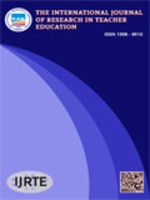Corporal Punishment is a Necessary Evil: Parents’ Perceptions On The Use Of Corporal Punishment In School
Corporal Punishment is a Necessary Evil: Parents’ Perceptions On The Use Of Corporal Punishment In School
Corporal punishment in Zimbabwe is a “hot potato” that is bringing challenges both on the legal and cultural fronts. My interest in doing this study stems from the Supreme Court ruling that ruled the use of corporal punishment is unconstitutional. After the ruling, it became imperative to understand the views of different people pertaining to the use of corporal punishment, especially in schools because that is where it is prevalent. For this study I sought to discover and understand the perspectives and worldviews of parents with regards to the use of corporal punishment in schools. I used the basic interpretive approach for this qualitative research study. A sample of nine participants was selected during one visitation weekend at the school. I collected data through interviews and was analyzed through conventional content analysis. The research findings revealed parents advocated for the continuance in use of corporal punishment. The study revealed that parents considered that corporal punishment had immediate benefits, future benefits, and was also cited in the Bible. The study recommends that Zimbabwe as a country should come up with laws on corporal punishment use that do not erodes its cultural values nor break children’s human rights.
___
- Chemhuru, M. (2010). Revisiting the place of punishment in Zimbabwe’s primary and secondary school formal education system. Journal of African Studies and Development, 2(7), 176-183.
- Elo, S. & Kyngas, S. (2008). The qualitative content analysis process. Journal of Advanced Nursing, 62(1), 107-115.
- Gambanga, J. (2015). Is corporal punishment really bad for juveniles? Retrieved from http://www.zbc.co.zw/news-categories/opinion/51619-is-corporal-punishment-really-bad-for-juveniles
- Gudyanga, E., Mbengo, F., & Wadesango, N. (2014). Corporal punishment in schools: Issues and challenges. Mediterranean Journal of Social Sciences, 5(9), 493-500.
- Hampson, J. (1990). Marginalization and rural elderly: A Shona case study. Journal of Social Development in Africa, 5(2), 5-23.
- Hoepfl, M. C. (1997). Choosing qualitative research: A primer for technology education researchers. Journal of Technology Education, 9(1), 47 – 63.
- Hsieh, H.-F., & Shannon, S.E. (2005). Three approaches to qualitative content analysis. Qualitative Health Research, 15(9), 1277-1288.
- Makwanya, P., Moyo, W., & Nyenya, T. (2012). Perceptions of the stakeholders towards the use of corporal punishment in Zimbabwean schools: A case study of Bulawayo. International Journal of Asian Social Science, 2(8), 1231-1239.
- Maphosa, C., & Shumba, A. (2010). Educators’ disciplinary capabilities after the banning of corporal punishment in South African schools. South African Journal of Education, 30, 387-399.
- Matope, N. & Mugodzwa, T. (2011). The prevalence of corporal punishment in Zimbabwean schools in the twenty-first century: A case study of Gweru. The Dyke, 5(2), 95-108.
- Merriam, S. B. & Associates. (2002). Qualitative research in practice: Examples for discussion and analysis. San Francisco: Jossey-Bass.
- Miller, A., 1991. Breaking down the wall of silence. To join the waiting child. London, UK: Virago Press.
- Mugabe, J. M., & Maposa, A. D. (2013). Methods of curbing learner misconduct in Zimbabwean secondary schools. International Journal on New Trends in Education and their Implications, 4(4), 111-122.
- Seidman, I. E. (2013). Interviewing as qualitative research: A guide for researchers in education and the social sciences. New York: Teachers College Press.
- Shumba, A. (2001). Epidemiology and etiology of reported cases of child abuse in Zimbabwean primary school. Child Abuse and Neglect, 25, 265-277.
- Shumba, A. (2003). Children's Rights in Schools: What do teachers know? Child Abuse 12, 251-260.
- Shumba, A., Mpofu, E., Chireshe, R., & Mapfumo, J. (n.d). Corporal punishment in Zimbabwean schools: Aetiology and challenges, 1-10
- Shumba, A., Ndofirepi, A. P., & Musengi, M. (2012). An exploratory study of corporal punishment by teachers in Zimbabwean schools: Issues and challenges. International Journal of Educational Science, 4(3), 279-287.
- Thomas, D. R. (2006). A general inductive approach for qualitative data analysis. American Journal of Evaluation, 27(2), 237-246.
- Zhang, Y. & Wildemuth, B. M. (n.d). Qualitative analysis of content. Retrieved from https://www.ischool.utexas.edu/~yanz/Content_analysis.pdf
- Zikhali, T. J., & Perumal, J. (2014). Zimbabwean female principal’s promotion of children’s rights in disadvantaged schools contexts. ICERI Conference, Seville: Spain, 5708-5713.
- Zindi, F. (1995). An analysis of arguments for and against corporal punishment in Zimbabwe. Zimbabwe Journal of Educational Research, 7(7), 69 – 83.
- ISSN: 1308-951X
- Başlangıç: 2010
- Yayıncı: Eğitim Araştırmaları Birliği Derneği
